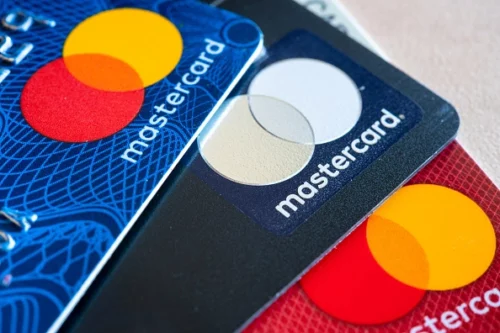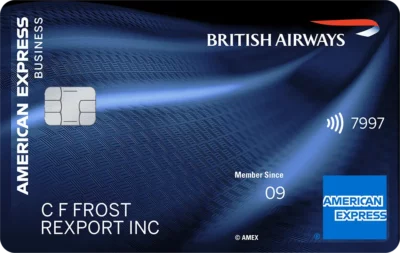American Express changes the minimum income requirement for the free BA card
Links on Head for Points may support the site by paying a commission. See here for all partner links.
In 2023, American Express brought back minimum income requirements for its UK personal and small business cards.
Between 2016 and 2023, the company took a more holistic view of your finances. After all, a single person living at home on a £25,000 salary has a totally different disposable income profile to someone who is married with two kids and a mortgage taking home £35,000. This approach ended in 2023.
The company has just tweaked the minimum income requirement for the free British Airways card, following changes made to the other free cards last year. No limits have increased.

The previous limits were not exactly tough for anyone in a full time job. Even someone on minimum wage doing 40 hours per week would qualify for every American Express card except The Platinum Card and the British Airways American Express Premium Plus Card.
The winners from these changes are probably the retired or part-time workers, who may now find they earn enough to apply for specific products.
These are the current PERSONAL income requirements:
- British Airways American Express Credit Card – £15,000 (was £20,000 until May 2025)
- The American Express Rewards Credit Card – £15,000 (was £20,000 until July 2024)
- Amex Cashback Everyday Credit Card – £15,000 (was £20,000 until July 2024)
- American Express Preferred Rewards Gold Credit Card – £20,000 (unchanged)
- Amex Cashback Credit Card – £20,000 (unchanged)
- Nectar Credit Card – £20,000 (unchanged)
- Marriott Bonvoy American Express – £20,000 (unchanged)
- The American Express Business Gold Card – £20,000 (unchanged)
- British Airways American Express Accelerating Business – £20,000 (unchanged)
- The Platinum Card – £35,000 (unchanged)
- British Airways American Express Premium Plus Card – £35,000 (unchanged)
- The American Express Business Platinum Card – £35,000 (unchanged)
For the small business cards, the minimum income figure relates to the personal income of the person applying and not the profits of the business itself.
Limits have been falling in real terms for many years
If we go back to 2016, these levels are often substantially lower than they were, adjusting for wage inflation.
The Platinum Card was £40,000 in 2016 but is currently £35,000. With wage inflation it should be nearer £55,000.
The Marriott Bonvoy American Express Card required a £30,000 personal income in 2016 but is now £20,000, when wage inflation should have pushed it to nearer £40,000.
The only jump is the British Airways American Express Premium Plus Card, which was available on a £20,000 income in 2016 but now requires £35,000.
The other personal cards were £20,000 in 2016. Those which have now dropped to £15,000 over the past year would have been nearer £30,000 had the limit kept pace with wages.
PS. If you are not a regular Head for Points visitor, why not sign up for our FREE weekly or daily newsletters? They are full of the latest Avios, airline, hotel and credit card points news and will help you travel better. To join our 70,000 free subscribers, click the button below or visit this page of the site to find out more. Thank you.

Want to earn more points from credit cards? – July 2025 update
If you are looking to apply for a new credit card, here are our top recommendations based on the current sign-up bonuses.
In 2022, Barclaycard launched two exciting new Barclaycard Avios Mastercard cards with a bonus of up to 25,000 Avios. You can apply here.
You qualify for the bonus on these cards even if you have a British Airways American Express card:

Barclaycard Avios Plus Mastercard
Get 25,000 Avios for signing up and an upgrade voucher at £10,000 Read our full review

Barclaycard Avios Mastercard
Get 5,000 Avios for signing up and an upgrade voucher at £20,000 Read our full review
You can see our full directory of all UK cards which earn airline or hotel points here. Here are the best of the other deals currently available.
SPECIAL OFFER: Until 15th July 2025, the sign-up bonus on the Marriott Bonvoy American Express Card is TRIPLED to 60,000 Marriott Bonvoy points. This would convert into 25,000 Avios or into 40 other airline schemes. It would also get you at least £300 of Marriott hotel stays based on our 0.5p per point low-end valuation. Other T&C apply and remain unchanged. Click here for our full card review and click here to apply.
SPECIAL OFFER: Until 14th August 2025, the sign-up bonus on the Hilton Honors Plus debit card is TRIPLED to 30,000 Hilton Honors points. You will also receive Gold Elite status in Hilton Honors for as long as you hold the card. Click here for our full card review and click here to apply.

American Express Preferred Rewards Gold Credit Card
Your best beginner’s card – 20,000 points, FREE for a year & four airport lounge passes Read our full review

British Airways American Express Premium Plus Card
30,000 Avios and the famous annual Companion Voucher voucher Read our full review

The Platinum Card from American Express
50,000 bonus points and great travel benefits – for a large fee Read our full review

Virgin Atlantic Reward+ Mastercard
18,000 bonus points and 1.5 points for every £1 you spend Read our full review
Earning miles and points from small business cards
If you are a sole trader or run a small company, you may also want to check out these offers:

The American Express Business Platinum Card
50,000 points when you sign-up and an annual £200 Amex Travel credit Read our full review

The American Express Business Gold Card
20,000 points sign-up bonus and FREE for a year Read our full review

Capital on Tap Pro Visa
10,500 points (=10,500 Avios) plus good benefits Read our full review

Capital on Tap Visa
NO annual fee, NO FX fees and points worth 0.8 Avios per £1 Read our full review

British Airways American Express Accelerating Business Card
30,000 Avios sign-up bonus – plus annual bonuses of up to 30,000 Avios Read our full review



 Rob
Rob 





Comments (111)